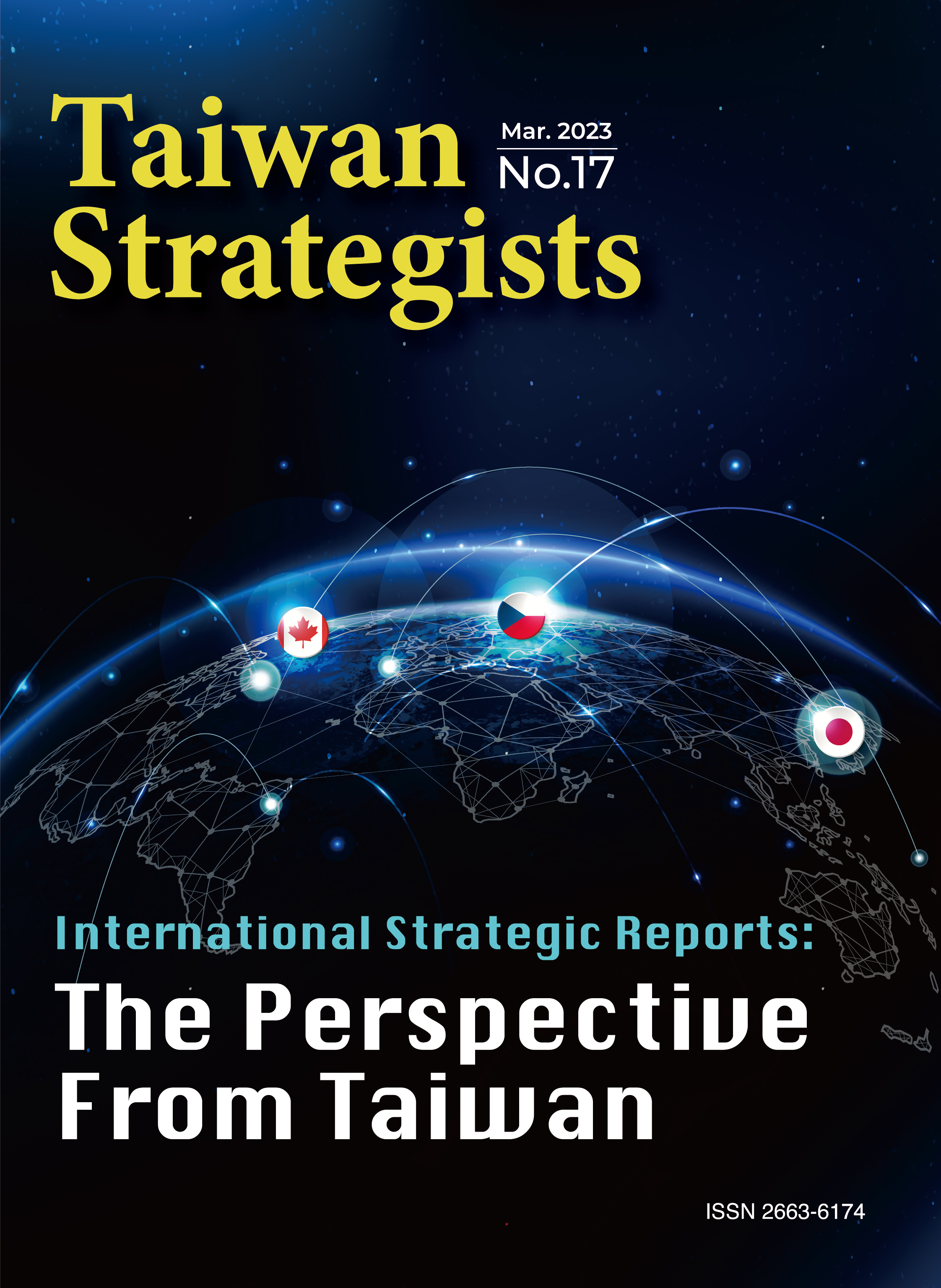Taiwan Strategists No. 17
Japan’s National Strategy and Changes in the Situation in East Asia
Yen-Hung Lin
Assistant Research Fellow,
Division of Defense Strategy and Resources,
Institute for National Defense and Security Research
Abstract
The international community is facing transformation, the foundations of the international order are being shaken, and the world is at a crossroads. Japan is in the most severe and complex security environment since World War II, and needs to develop and maintain a free and open international order based on the rule of law The National Security Strategy of Japan emphasizes the importance of strengthening comprehensive defense capabilities to promote Japan’s diplomacy. Therefore, the Japanese Ministry of Foreign Affairs will continue to strengthen the Japan-U.S. alliance and defense cooperation with like-minded countries. It will also coordinate its relevant strategies to further promote the realization of a “Free and Open Indo- Pacific” and strive to improve the security environment around Japan, and carry out substantive diplomatic cooperation with countries and regions bordering the Indo- Pacific. Japanese Prime Minister Fumio Kishida said the economic conflict caused by the Covid-19 pandemic, Russia’s invasion of Ukraine and tensions across the Taiwan Strait are new factors in the National Security Strategy of Japan and its National Defense Strategy.
Keywords: National Security Strategy of Japan, National Defense Strategy, Defense Buildup Program, Taiwan Strait Situation, China is the Biggest Strategic Challenge
Canada’s Indo-Pacific Strategy: Origins, Implications, and Impact
Liang-Chih Evans Chen
Associate Research Fellow, Division of Defense Strategy and Resources,
Institute for National Defense and Security Research
Abstract
Canada’s proposal of the Indo-Pacific Strategy (IPS) in the end of 2022 is considered as a new strategic approach to its relationship with China and a changing security environment in the Indo-Pacific. This paper examines the origins, implications, and impact of Canada’s IPS. Canada’s IPS is rooted in its strong relationship with the U.S., as well the threat posed by Beijing, the downturn in Canadian-Chinese relations, as well as encouragement by the U.S. and shared allies and partners. As to the implications of the IPS, Ottawa’s position is important to the U.S.-led democratic alliance and suggests that Beijing may fail in its efforts to create a wedge between Washington and its allies and partners. Finally, in terms of impact, the bilateral relationship between Canada and China is and will continue to be influenced, and Beijing will react to that. The U.S.-led alliance against China is and will be consolidated. Yet, the future of the Indo-Pacific will remain uncertain.
Keywords: Indo-Pacific Strategy, Great Power Competition, U.S.-led Democratic Alliance, Canada, Russia-Ukraine War
The Czech Republic’s Indo-Pacific Strategy and the Challenges and Opportunities for Taiwan in Europe
Ian Tsung-Yen Chen
Associate Professor, Institute of Political Science,
National Sun Yat-sen University
Abstract
In recent years, China’s repressive and authoritarian behavior, both internally and externally, has elicited concern in Europe. As a result, many European countries have started to reconsider their approach towards China and acknowledge the necessity of strategically containing its ambitions in the Indo-Pacific region and beyond. The Czech Republic is one such country that has formulated an official Indo-Pacific Strategy to signal its strategic interests in the region. Prague has identified geopolitics, regional economics, and the established international order as areas of strategic importance, and has outlined its objectives for addressing these issues. In particular, Taiwan has been recognized as a critical partner for cooperation. As the strategic interests of Europe and China continue to diverge, and China’s perception in Europe deteriorates, Taiwan’s standing in the Czech Republic and Europe has been on the rise, thereby facilitating Taiwan’s diplomatic efforts on the continent.
Keywords: Czech Republic, Taiwan, Europe, Indo-Pacific Strategy, Diplomacy




